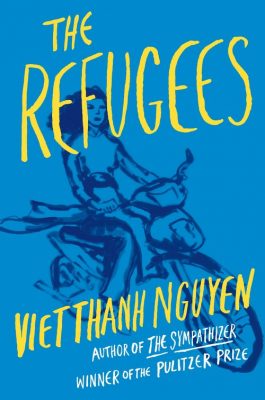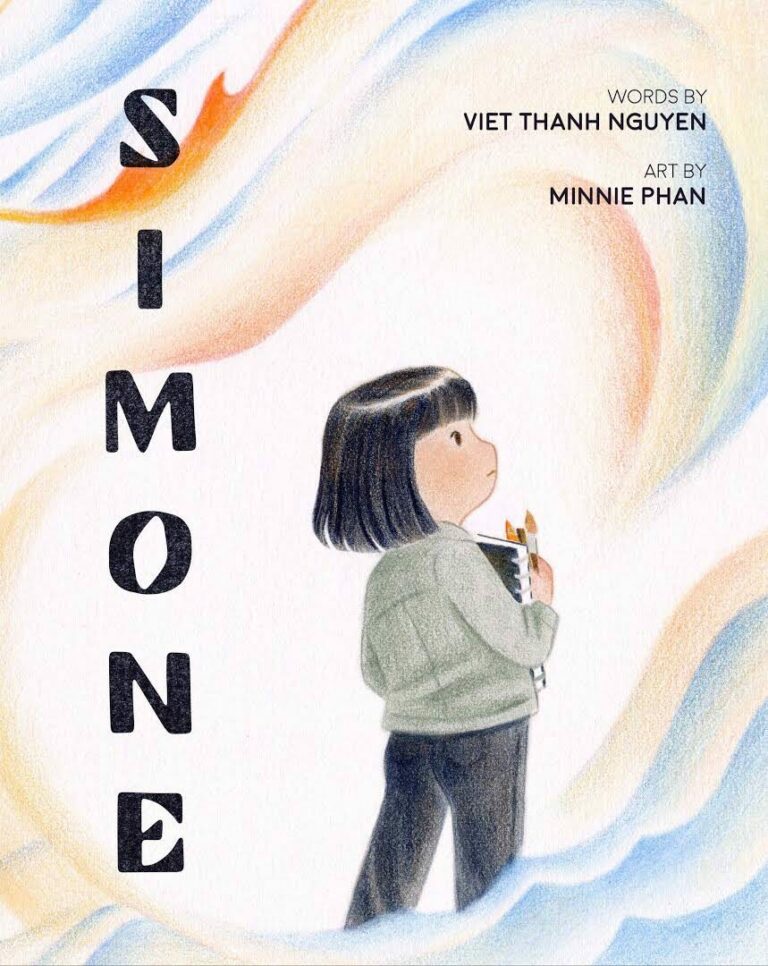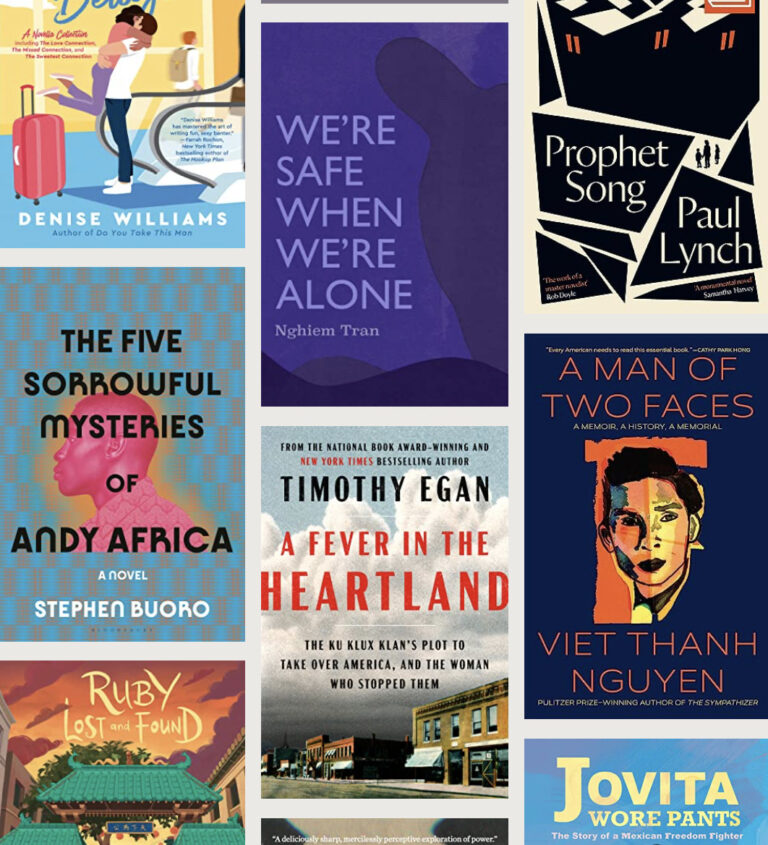Heather Scott Partington reviews ‘The Refugees’. Originally published in The National Book Review.

***
Viet Thanh Nguyen’s new collection of short stories, The Refugees, is timely; its coincidental co-release with the president’s executive order on immigration underscores the importance of good writing about those seeking refuge from war-torn nations. And yet Nguyen, whose 2015 novel The Sympathizer won the Pulitzer Prize, presents a clever and intimate portrait of inter-generational family relationships that is—and will be—necessary in any time. Nguyen’s stories illustrate how governmental actions during war can ripple out and through the lives of a nation, sending its people across the globe, but they bring to light another topical question from the news: just how much do we believe each other?
It’s impossible to read The Refugees without the news of protests, broken families, and this idea in mind, for offering refuge is an act of extreme trust. You can’t offer refuge without belief in the other person’s version of the truth. Nguyen builds on this and more as his characters’ entangled lives are complicated by how much they have allowed each other to know about their refugee experience and how much the refugees have spoken (or not spoken) about what they’ve endured. What remains true in each story, whether his characters are in California’s Vietnamese communities or in Vietnam, is that war creates breaks in family lines. Nguyen writes compelling stories that reflect these caesura, and The Refugees is a precisely rendered collection of sketches.
Characters in Nguyen’s stories are haunted by their past as much as they’re haunted by what they’ve tried to omit from their family discussion. His collection opens with “Black-Eyed Woman,” a story about a female ghostwriter who sees the ghosts of her family’s escape from Vietnam. A son in “I’d Love You to Want Me” regards his father’s scars and affectations from afar, never really knowing the totality of what he endured. In every instance, and in each voice he inhabits, Nguyen writes with vitality and a critical eye. In all cases, there’s an undercurrent of fear from children who worry that they will grow up to be their parents.
Nguyen’s stories are significant because they both are and are not like those of everyone else; the presentation of the refugee experience as human, and therefore relevant, written with a skillful hand. Since these stories speak to the unique refugee experience, they will garner reviews full of words like “necessary,” “important” and “required.” It’s impossible not to use these words because they’re earned by his steady prose. Nguyen’s writing is a wonderful dichotomy of honesty and energy.
At the same time, these are stories that will seem familiar to any reader because they’re generational, human. Nguyen’s work is significant—sometimes—precisely because he has made it feel as if it is not. His stories are character-based and intimately focused on detail: one character slashes his ex-wife’s tires when he finds out she’s pregnant by another man, another dutifully records each instance of her husband’s failing memory as he descends into Alzheimer’s. Ordinary stuff, and yet, the specter of war looms.
Through each of Nguyen’s stories, truth is filtered, reminding the reader that even true stories are diluted by time, generations, and memory. Mrs. Hoa, a woman in “War Years” who tries to extort money from local store owners through public shaming and under the guise of “fighting the communists,” is trying to use her public efforts to cover the depths of her own loss. Many characters begin to rewrite their own stories as soon as they arrive in America and encounter distinctly different American narratives. In “The Other Man,” Liem struggles to reconcile his own sense of self with the world he finds in San Francisco’s Mission District. Liem becomes more honest with himself about his sexual identity, and yet as he stares at his own reflection, he wonders, “Why, then, did he not recognize himself? And why did he see right through himself to the dark street outside?”
Nguyen’s stories illuminate how identity is, in many ways, a story we rewrite until we die. As his characters move across borders, their stories change, and true identities are guarded. All the while, he reminds his reader that the idea of story is ephemeral. “[M]y mother was right,” he says. “Stories are just things we fabricate, nothing more. We search for them in a world besides our own, then leave them here to be found, garments shed by ghosts.”
Nguyen’s collection often centers on the ideas of love and desire, between spouses and from one generation to the next. Because the Vietnam War broke families as well as traditions, these stories represent many different iterations of relationships: arranged marriages, loving marriages, affairs, and silent, stoic agreements. There are first-generation Americans who struggle to make their parents understand and see them. Nguyen often takes on the subject of veracity of words, and of how much we can trust what other people tell us—particularly when it comes to their relationship with us, as in “The Transplant.” In it, he draws parallels between a family’s search for the son of the man who donated a liver to keep the husband alive and their new business selling knockoff handbags out of their garage. In “I’d Love You to Want Me,” an aging and ailing professor begins to call his wife of many years by his former lover’s name.
Nguyen often interjects an element of surprise from the past into his characters’ relationships to show that they can never really know each other. It seems true that this is also true of the refugee experience. Though his stories give glimpses, they are only that, and as he shows us in “Fatherland” with a particularly poignant scene of American tourists in Vietnam, many Americans are content only to understand a fraction of Vietnamese life. A daughter speaks of her father, but in doing so she speaks for many of Nguyen’s other characters, and to how refugees are viewed: “Can you love someone you don’t remember? Can you love someone you don’t know?”
The Refugees is clever, it’s paced well, and it’s a solid collection of stories that Viet Thanh Nguyen published over the last decade. That they take on an immediately different resonance the minute you read the book’s inscription, “For all refugees, everywhere,” is indicative of the fact that books don’t exist in a vacuum. But this is a book you should read, and that is an argument I would have made a month ago, before the President signed an executive order blocking admission to this country of people who seek safety from war.
Nguyen describes refugees’ lives and journeys with nuance; his character-driven work is structurally and topically diverse. He writes in a number of voices and approaches the refugee experience from many angles and perspectives. Though he underscores the evanescent nature of narrative, he also justifies its purpose. These stories serve to bear witness to both the experiences of refugees and the futility of trying to quantify the experience of any one group of people. “We passed our youth in a haunted country,” Nguyen’s ghost writer says. Nguyen makes the case that in some ways, we all do.


